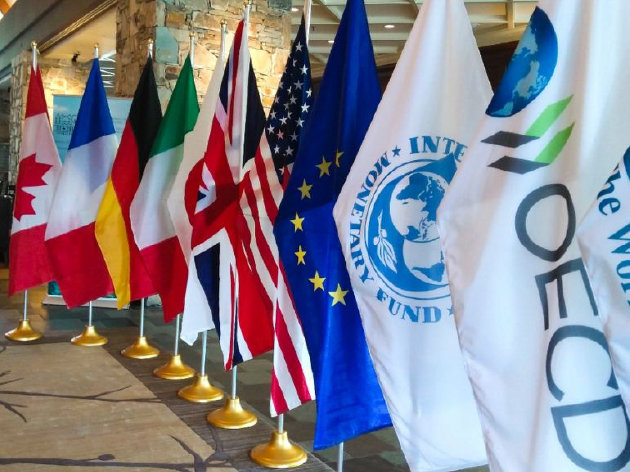WHISTLER (Canada) - Group of Seven finance ministers ended their annual meeting Saturday with US allies united in condemning Washington’s aggressive protectionism, calling on President Donald Trump to reverse his decision to impose punishing metal tariffs.
The lack of common ground meant the dispute would continue into next week’s G7 summit in Quebec, Canada, where Trump is expected to face other heads of state as the global economy verges on outright trade conflict. At this snow-capped mountain resort north of Vancouver, British Columbia, US Treasury Secretary Steven Mnuchin was the odd man out.
Major trading partners rebuked Trump’s multi-front trade offensive while their governments announced countermeasures and legal challenges. One after another, finance ministers and central bankers spoke of exasperation and an abiding sense of betrayal by a longtime ally.
Mnuchin, however, downplayed the disagreements and said the United States was committed to the G7 process. Announcing the meeting’s close, Canadian Finance Minister Bill Morneau said the host government and five others had urged Mnuchin to relay their “unanimous concern and disappointment.” “We said that we were collectively hoping that he would bring the message back of regret and disappointment at the American actions and concern that they are not constructive,” said Morneau.
French Finance Minister Bruno Le Maire also expressed France’s outrage as the meetings ended. “I want to make it clear,” Le Maire said, “that it is up to the US administration to make the right decisions to alleviate the situation and ease the difficulties.” Avoiding trade war “will depend on the decision the (US) administration is ready to take in the next few days and in the next few hours -- I’m not talking about weeks ahead,” he added.
German Finance Minister Olaf Scholz told reporters the US tariffs were “a very severe problem” for transatlantic relations. (AFP)
Home » World » US Isolated as Trade Outrage Roils G7 Ministerial Meet
US Isolated as Trade Outrage Roils G7 Ministerial Meet

